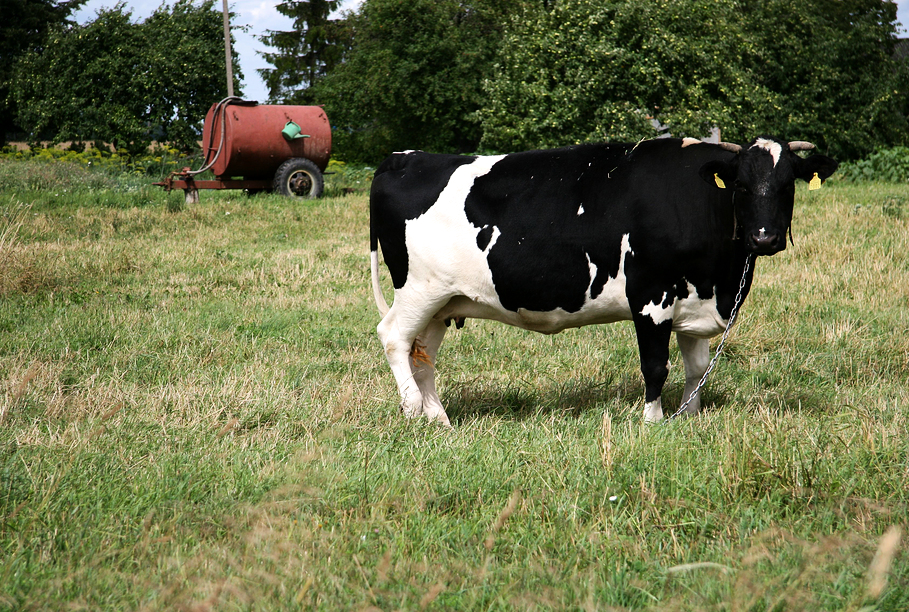Dairy farmer Guntis Krumins from Kandava district told Panorama that he’s checked the figures and confirmed that he’s selling his milk at 30% below production costs. Whereas in August milk wholesalers were still seeking alternative export markets, at least now the milk is flowing elsewhere out of the country.
“The milk’s going to Lithuania, Poland, some demo cargoes to Belarus, basically it’s getting shipped out of state,” he said.
The farmer receives €0.21 per liter of milk, whereas the price in Europe is €0.40 per liter. Krumins says if the price were at least €0.30 per liter, he would at least be able to make ends meet.
While prices keep dropping, farmers are forced to figure out ways to keep their homestead enterprises in survival mode.
“The cows can’t settle for 30% less feed and farm vehicles won’t run on 30% less fuel,” says Krumins.
Like many of his counterparts around the land, he has had to put on hold improvements to the farm required according to EU regulations. Many of his investments into building new facilities have stopped at the halfway mark, postponed until milk prices can ensure an adequate flow of income again.
Of the €6m allocated by the government to compensate the sector’s hardest hit producers, Krumins has received €4500, all of which was spent on fuel.
The farmer says he is grateful for the support during hard times, but that the compensation cannot come close to covering all of his losses. He suggested the fuel excise tax be waived for the dairy sector as a more effective measure that would be felt sooner than current compensation schemes.
For the time being he is still able to pay his bills, but he knows that nearby farmers are already scheduling appointments at their banks to negotiate postponements in their payment arrangements.
“My colleagues have gone to talk, but the banks’ doors have closed. They don’t trust the (situation with) dairy farmers,” he admits.






























